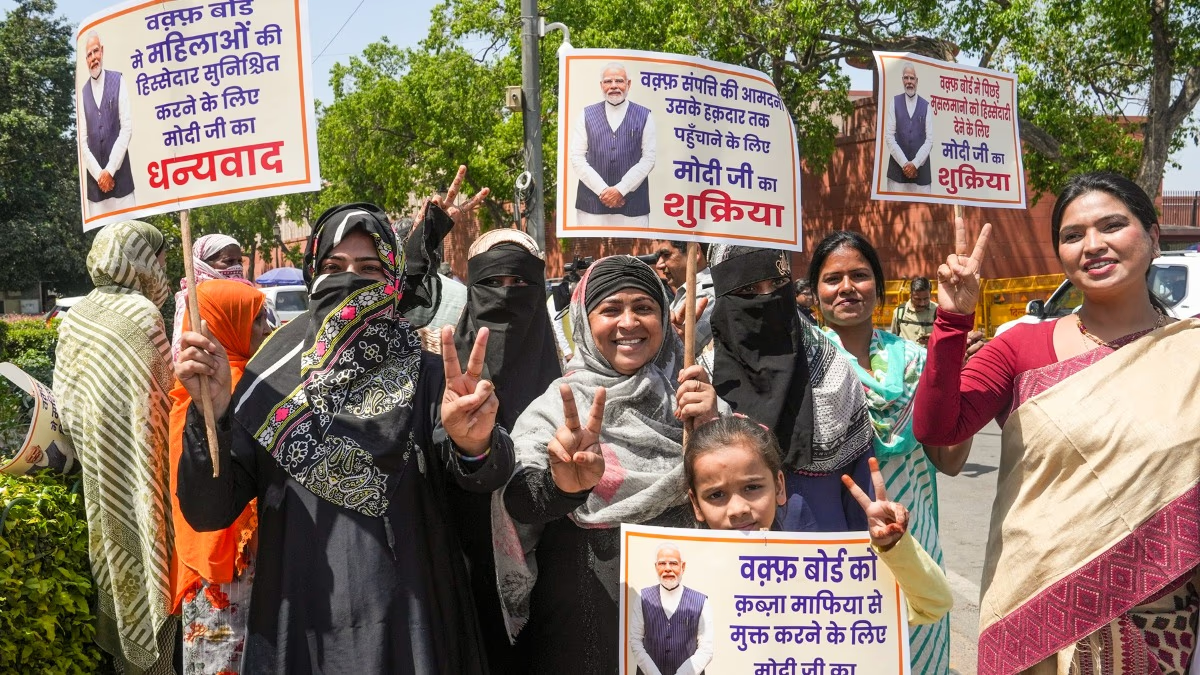The Waqf (Amendment) Bill 2025 is currently being debated in the Rajya Sabha. This bill has already been passed in the Lok Sabha on Wednesday. It takes careful consideration of the rights of women, widows, and orphans. According to the new bill, if any Muslim wants to donate their property to Waqf, they must first allocate a share to the female members of their family.
In Islam, the term 'Waqf-alal-Aulad' is significant in the donation process. For centuries, it has played a vital role in preserving wealth and supporting charitable activities. 'Waqf-alal-Aulad' translates to 'Waqf for the family.' It is a type of Waqf where a Muslim donates their property for the benefit of their children, grandchildren, or other family members. The aim is to ensure the economic security of the family, allowing them to receive the income from the property (such as rent or farm earnings). However, the waqif (donor) can also include provisions in the Waqf deed to allocate a portion of the income for religious activities.
This practice originates from Hanafi Islamic law and is recognized under Muslim Personal Law in India.
The tradition of 'Waqf-alal-Aulad' gained prominence during the Ottoman Empire, where it became a strategic tool for wealth preservation. By transferring property into a Waqf, affluent families shielded their possessions from inheritance laws or state seizure. Similarly, in Mughal India, several noble families and regional rulers used 'Waqf-alal-Aulad' to safeguard their property for future generations.
Furthermore: Understand the new rules for giving property to Waqf... Muslims over 5 years won't donate daughters' share
However, it was often misused. At times, people deprived their own family women of their rights and handed over all the property to Waqf.
Notably, once declared a Waqf, the property is considered permanent and irretrievable. This means it cannot be sold, transferred, or reclaimed. Therefore, nothing remained in the hands of the women due to this provision.
Waqf (Amendment) Bill 2025 and Waqf-alal-Aulad
Some specific provisions have been added in the new Waqf bill regarding 'Waqf-alal-Aulad' to prevent its misuse and protect the rights of women and vulnerable groups.
The new bill states that before establishing a ‘Waqf-alal-Aulad,’ it is essential to allot the inheritance portion to women (such as daughters, wives, widows) and other heirs (such as orphans).
Assume a person wishes to incorporate property worth 1 million into a 'Waqf-alal-Aulad.' In such a case, they would first need to give a portion (say 200,000) to their daughter. Only the remaining 800,000 can form the Waqf.
If there are suspicion documents or disputes regarding a ‘Waqf-alal-Aulad,’ the district collector will investigate its legitimacy. Without solid evidence (like a Waqf deed), it will not be considered Waqf.
Now, in the name of 'Waqf-alal-Aulad,' daughters, wives, or widows cannot be deprived of their rights. This also strengthens Islamic principles.
Once this bill becomes law, there will be freedom to create a Waqf for the family, but under strict conditions.




